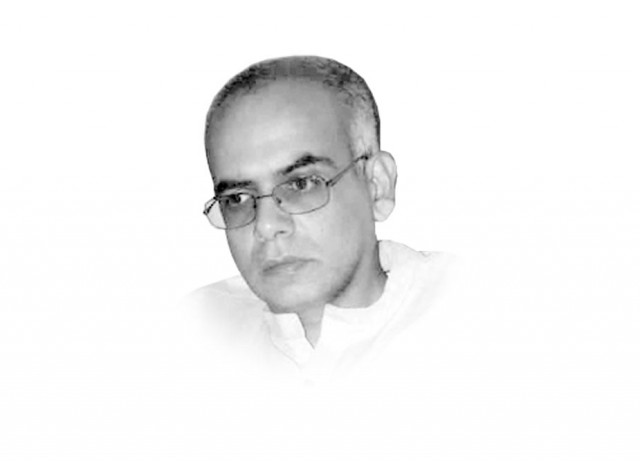Can private equity end poverty?
Major international development agencies are themselves actively wooing private finance

The writer is a development anthropologist. He can be reached at ali@policy.hu
Last month, we saw a major controversy stirred by accusations surrounding Abraaj Group’s misuse of a healthcare fund provided by the World Bank and other investors. Why is a private equity firm investing in healthcare for low income households? And, why have organisations the Bill & Melinda Gates Foundation and the World Bank’s International Finance Corporation become major investors in such firms?
A private equity firm like Abraaj Group essentially views development as a business opportunity. Such firms have begun investing heavily in developing countries, primarily in a bid to make more money for their investors. Abraaj’s recent investment in health networks in developing countries therefore does not aim to provide healthcare to the poorest of the poor. Instead it focuses on low and low-middle income fee paying populations. Yet, Abraaj has major aspirations for helping meet SDGs, provided it can satisfy the afore-mentioned concerns of its major development partners.
Of course, Abraaj is not the only private financial investor which is trying to use the promise of delivering development to make profits for its investors. In fact, major international development agencies are themselves actively wooing private finance.
Cash-strapped UN agencies have begun collaborating with large corporations, whereas the World Bank according to a recent New York Times article “is remaking itself as a creature of Wall Street.” The World Bank has begun to get billions of dollars from the private sector to invest in ventures across the developing world.
Soon after it was created at the end of WWII, the World Bank became a powerhouse of global finance, especially for the developing world. It got its money from rich countries like the US to in turn give loans to developing nations in lieu of economic reforms. The president of the World Bank is always a US government appointee, since the US is the entity’s largest financial contributor.
The World Bank has long been criticised for pushing neoliberal agenda of using market mechanisms to end complex problems like poverty and deprivation. It has encouraged governments to privatise essential services, including water, public health and education provision. While the US has mostly appointed people with economics or political backgrounds as World Bank presidents, it was surprising to see Obama appoint an anthropologist to head the World Bank in 2012.
The son of Korean immigrants, Jim Yong Kim, is an academic and a public health advocate. He was a fan of leftist intellectual Noam Chomsky and also a vocal critic of the World Bank for rolling back public spending in poor countries.
Soon after assuming office, however, Kim began to actively pursue private investors. In 2016, Kim announced a deal to raise billions of dollars from large insurance firms to invest in infrastructure projects. He formed another billion-dollar partnership with a private-equity firm to buy debt in developing countries. Alongside announcing that finally the World Bank would no longer back oil and gas drilling projects, Kim has begun raising a $2 billion investment fund to buy bonds that finance environmentally-friendly projects.
Instead of relying solely on contributions from reluctant donor governments, the World Bank is pushing private investors to funnel funds into development projects in poorer countries. These private investors expect to reap rich dividends by putting their money to work alongside the World Bank. Expecting these profit-making ventures to help alleviate marginalisation and deprivation remains a tall order. Given the growing collaboration between private equity firms and major international development agencies, it is unfair for the World Bank to portray itself as being dedicated to ending poverty.
Published in The Express Tribune, March 23rd, 2018.
Like Opinion & Editorial on Facebook, follow @ETOpEd on Twitter to receive all updates on all our daily pieces.














COMMENTS
Comments are moderated and generally will be posted if they are on-topic and not abusive.
For more information, please see our Comments FAQ